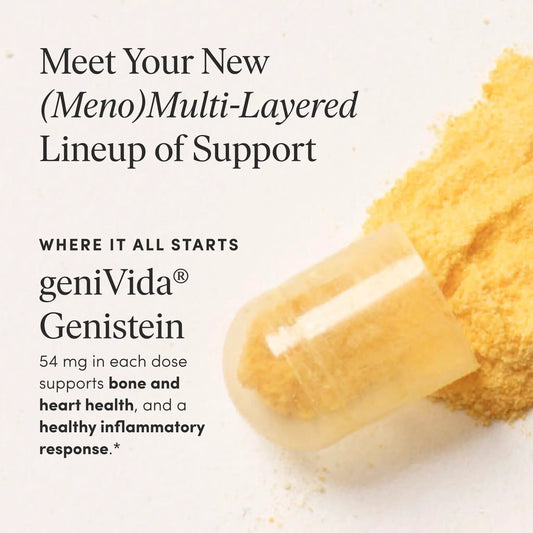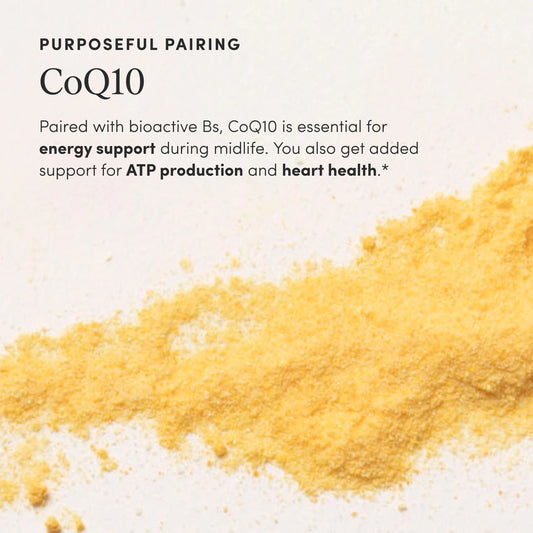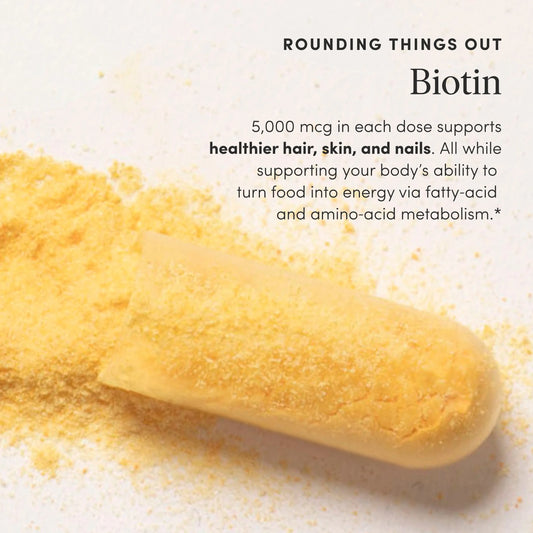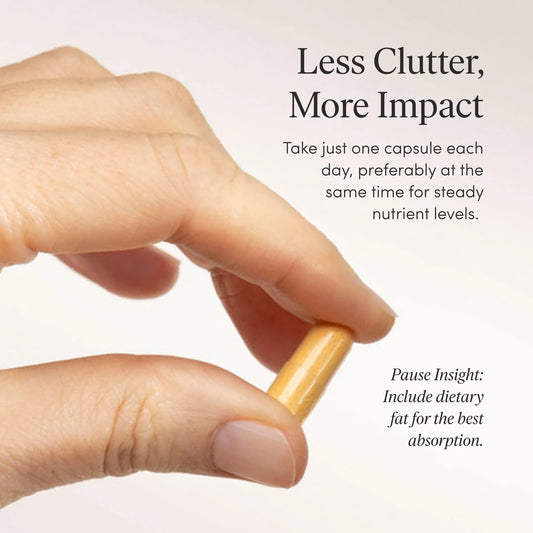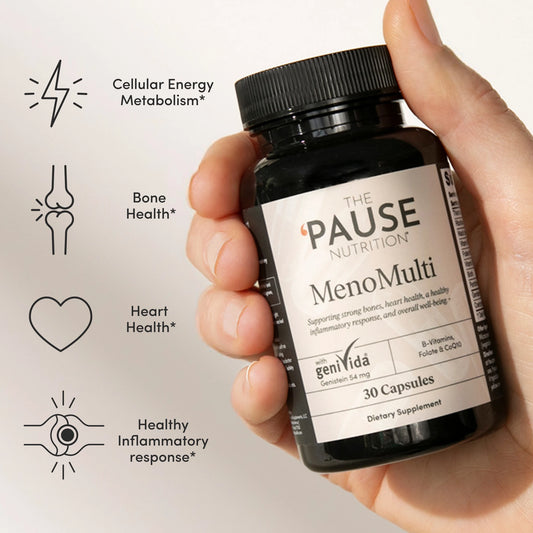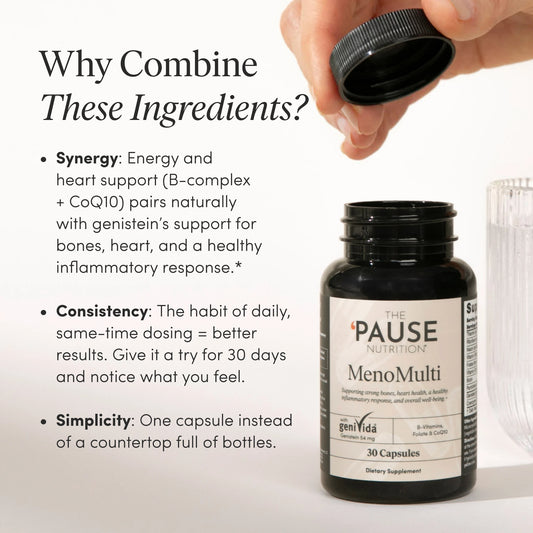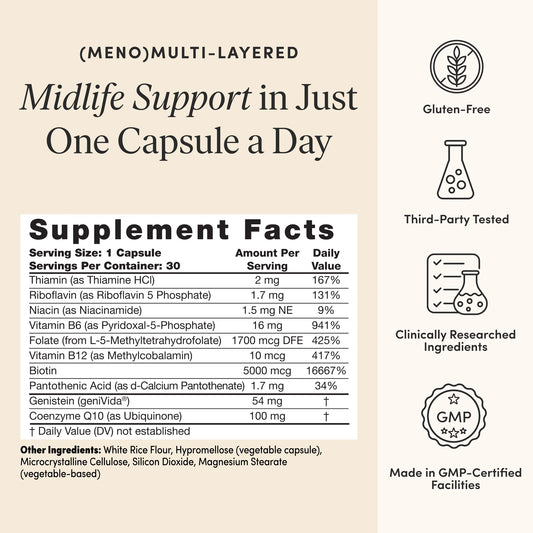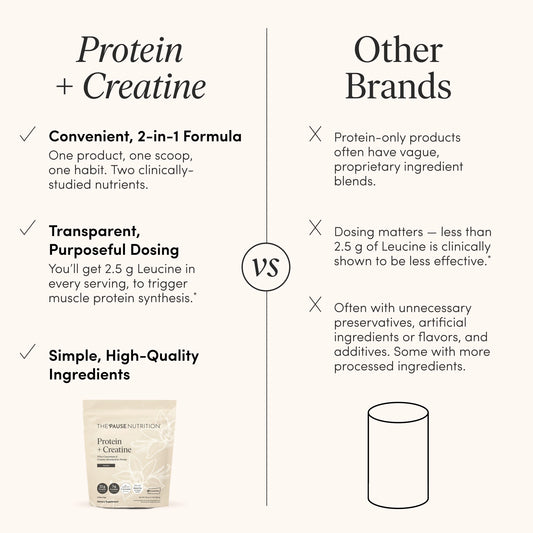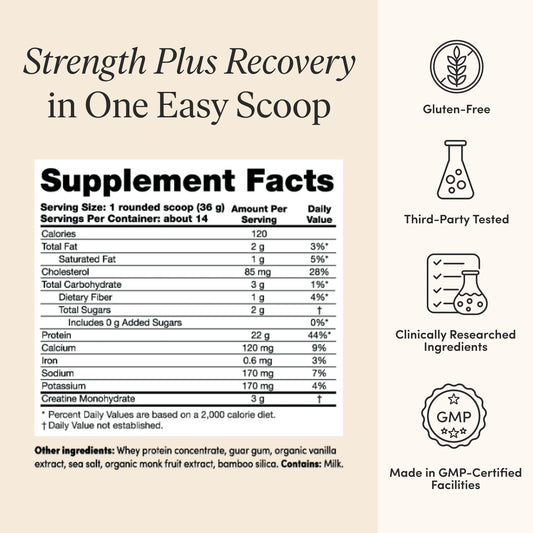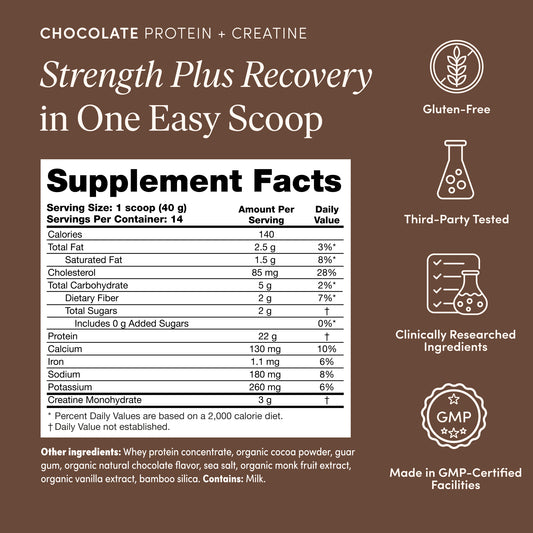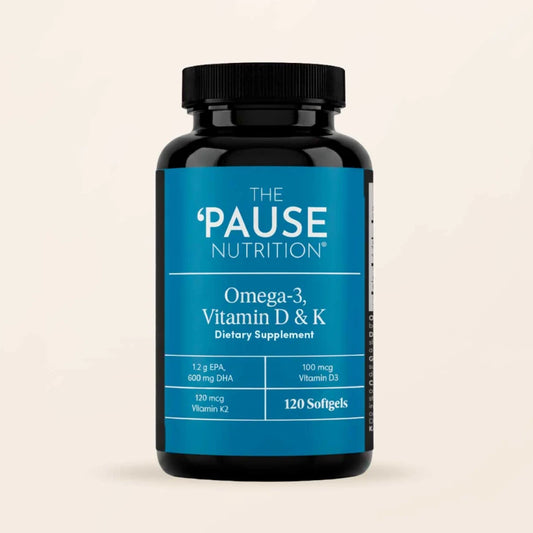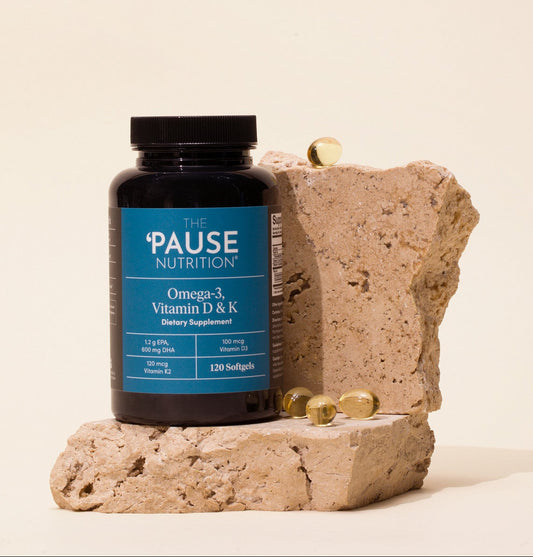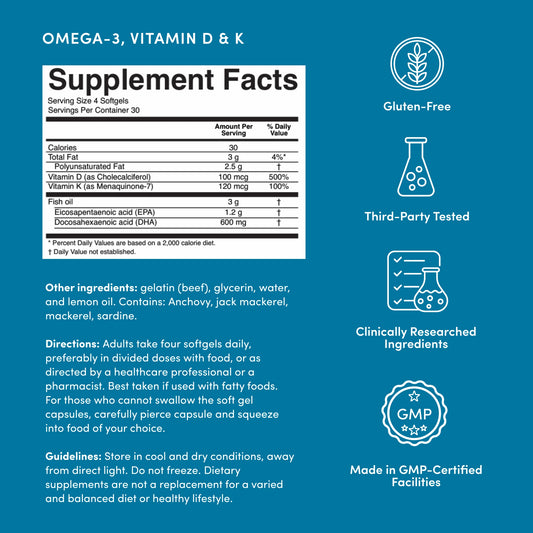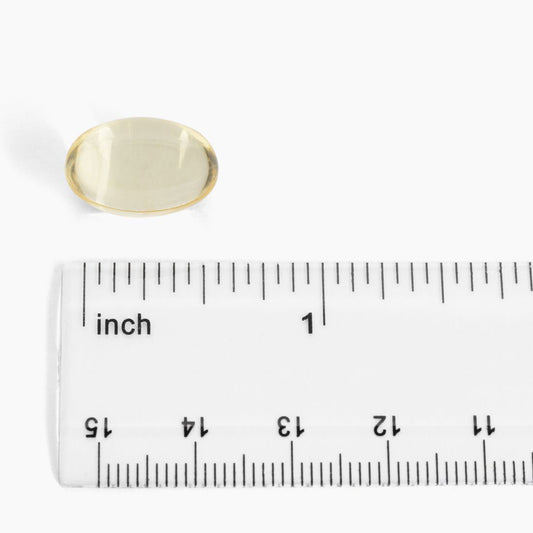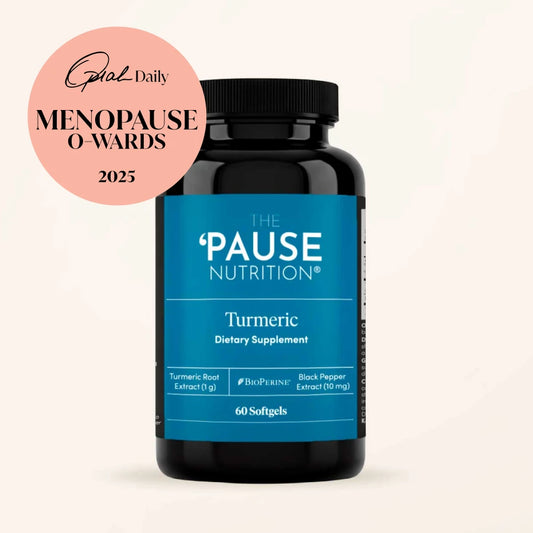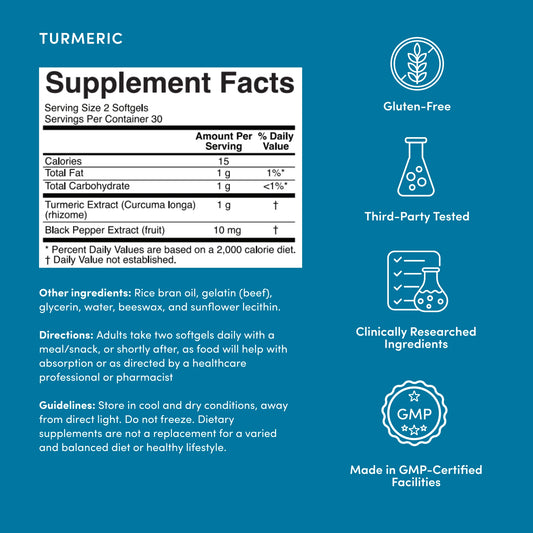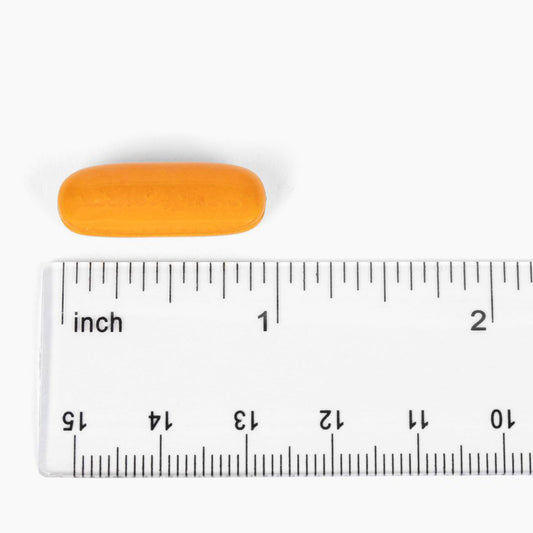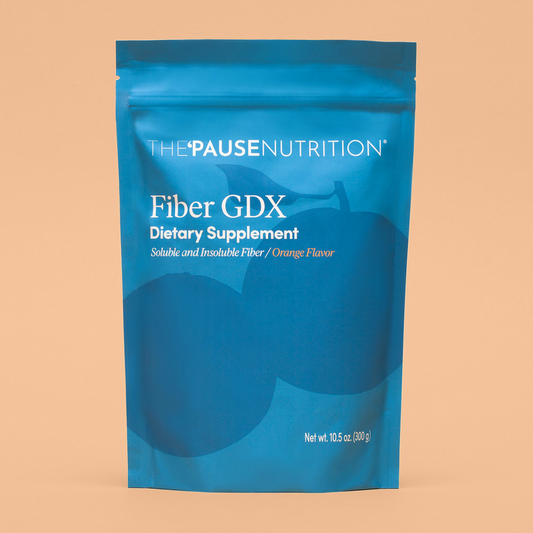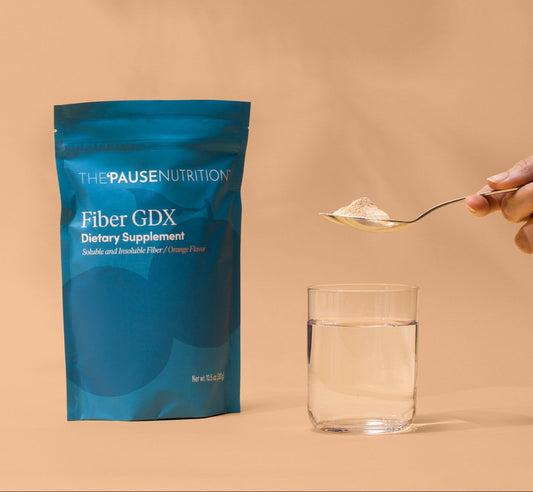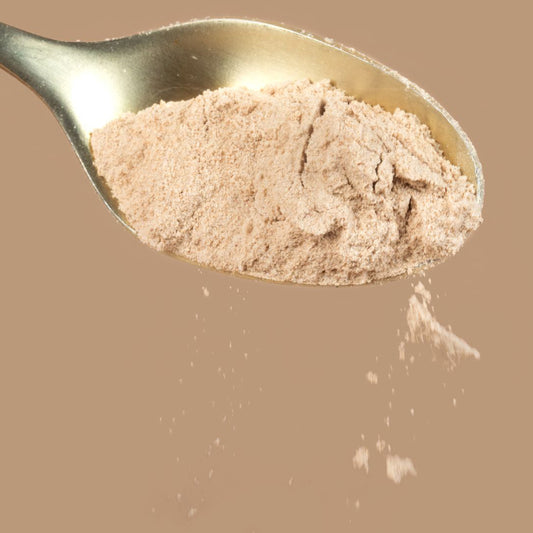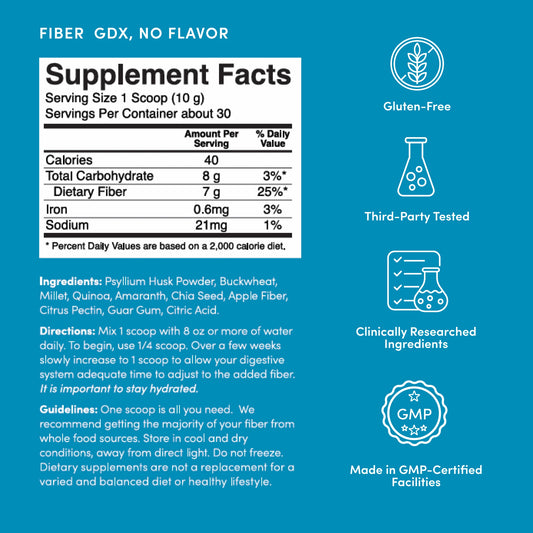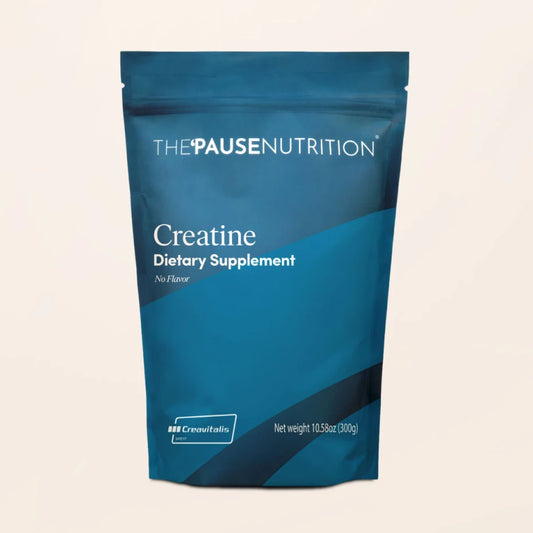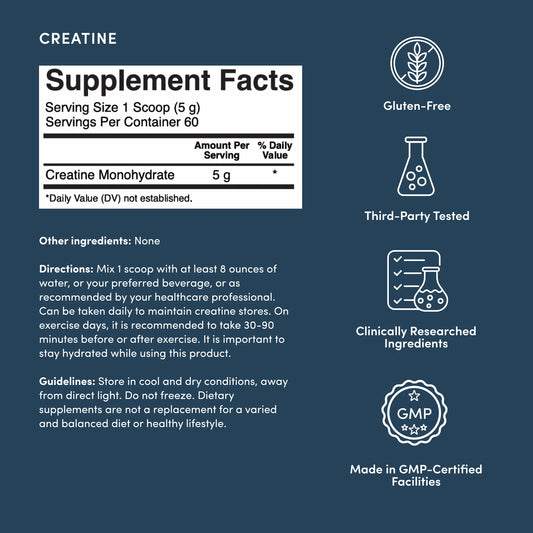It's Not Just Vaginal Dryness: Navigating Genitourinary Syndrome of Menopause
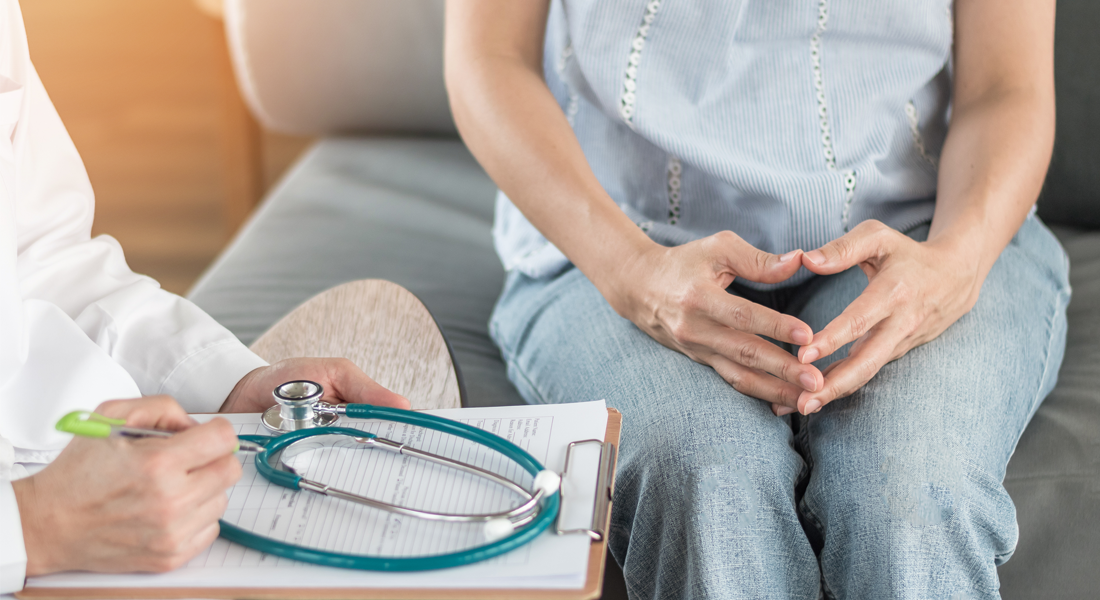
Share
My colleague, Urologist and Menopause Expert, Dr. Rachel Rubin, goes as far as to say “Vaginal dryness is killing women!”
So now that I have your attention, let’s discuss.
Vaginal dryness is a serious health issue that can lead to significant complications. It is also a symptom of a broader condition known as Genitourinary Syndrome of Menopause (GSM).
Understanding GSM
First, let’s start with the basics. The genitourinary system includes your genital and urinary organs. GSM is when you develop symptoms that affect the vagina, vulva (the opening of, and external parts of your vagina, including your labia), and/or bladder during menopause.(1) GSM is a drying, thinning, and inflammation of the vaginal walls and bladder. It results from falling estrogen levels and usually happens after menopause. Up to 40% of women experience severe symptoms, but only 20 to 25% will seek medical help.
GSM is very common, but you may not have heard of it because not enough women (and sadly some doctors) know about it. The lack of awareness can be due to women feeling embarrassed and not reporting their symptoms. It is important to remember that vaginal dryness is not a little annoyance, or something to dismiss. GSM is a serious condition that can have a big impact on your life, physical relationships, even your marriage. Please do not suffer in silence!
Common Symptoms of GSM
Vaginal Changes
As hormone levels decline, the vaginal issue can become thinner and lose elasticity. Vaginal lubrication can lessen. This can cause:
- Vaginal irritation, burning, and dryness: Reduced lubrication can make sexual intercourse uncomfortable or painful. Do not underestimate vaginal dryness.
- Vulvar atrophy: Thinning of the vulvar tissue can also lead to itching, burning, and irritation. You may notice this more during sexual activity.
- Recurrent urinary tract infections (UTIs): Changes in vaginal pH can increase susceptibility to UTIs.
- Decreased clitoral sensitivity and responsiveness: Less blood flow and diminished tissue health can lead to decreased sexual arousal and pleasure.
Urinary Symptoms
Supportive tissues in your bladder can weaken, leading to urinary incontinence. Specifically, that can look like:
- Urinary urgency: Frequent and sudden urges to urinate.
- Urinary frequency: Frequent urination, often during the night (nocturia).
- Urinary incontinence: Accidental leakage of urine, especially during activities like coughing, sneezing, or laughing.
Sexual Symptoms
All of the symptoms listed above due to the hormonal changes can impact sexual function:
- Painful Intercourse: Decreased vaginal lubrication and tissue thinning can lead to discomfort or pain during sexual activity.
- Reduced Libido: Lower estrogen levels can affect sexual desire.
- Difficulty Achieving Orgasm: Changes in vaginal sensitivity and blood flow can impact sexual arousal and orgasm.
The Dangers of Untreated GSM
I mention it above, but I want to emphasize this. I want to tell every single woman I meet about this. One of the most serious risks associated with untreated GSM is an increased risk of UTIs. UTIs can lead to serious health complications, especially in older adults. If this is you, suffering from recurrent UTIs and treating them only with antibiotics, please talk to your gynecologist about your symptoms. Be open and honest and ask if vaginal estrogen therapy is right for you. There are very few, if any, contraindications to the use of vaginal estrogen. This conversation could save your life!
Coping with GSM
While GSM can be a significant inconvenience, there are effective strategies to manage its symptoms. I’ll break them down in detail below.
The Power of Estrogen:
The gold standard treatment for GSM is vaginal estrogen therapy.(3) This is because we are replacing the hormone that is lacking. We are treating the root cause of the GSM symptoms. Studies have shown its effectiveness in improving vaginal health and reducing symptoms.(3)
How it works:
- Low-dose, local treatment: Vaginal estrogen comes in various forms like creams, tablets, capsules, and rings. These deliver a low dose of estrogen directly to the vagina, minimizing systemic side effects.
- Relieves symptoms: It helps restore the vaginal pH, thickness, and moisture, alleviating dryness, itching, burning, and painful intercourse.
- Additional benefits: It may also reduce UTIs and overactive bladder symptoms.
Beyond Estrogen: Building your Menopause Toolkit
While vaginal estrogen is a powerful tool, it's not the only option and can certainly be used in combination with other products. Here are some additional approaches to consider should you choose not to use vaginal estrogen, or to use in concert with your vaginal estrogen therapy:
Vaginal moisturizers and lubricants
These over-the-counter products (and there are so many to choose from) can help you quickly address vaginal dryness and can even enhance both comfort and sexual pleasure. But they work only to treat the symptoms. So they won’t address the root cause of vaginal dryness. If you’re only dealing with minor symptoms, you can start here. But realize that it is only a quick fix. It is important to note the differences between the products and read the labels carefully.
Vaginal moisturizers
These products rehydrate dry vaginal tissues and are absorbed into the tissues. They replenish vaginal moisture and leave the vagina hydrated and more elastic.(4)
- Vaginal moisturizers are designed to be used regularly, not just before sex. The key word here is moisturizer, like the moisturizer you apply to your face or body. Use them two to three times a week to keep your vagina moist and healthy.
- You can find vaginal moisturizers at most pharmacies and online. There are a lot of choices out there, but the current evidence suggests finding one that contains hyaluronic acid.
Lubricants
Water-based lubricants can be your friend during intimacy, reducing friction and discomfort.
- Lubricants are applied just before or during sex (but really the earlier the better here). These products act rapidly to provide short-term relief from vaginal dryness and related pain.
- Lubricants can enhance pleasure, so this can help make sex more comfortable and more enjoyable.
Other medications
DHEA vaginal suppositories
Dehydroepiandrosterone (DHEA) is a hormone precursor that can be converted to estrogen and testosterone in the body. Some studies show promise for DHEA suppositories in alleviating GSM symptoms, particularly dryness and pain during sex.(5)
- Important Note: I like this option if you have breast cancer and are on an aromatase inhibitor.(6)
Oral Ospemifene
Ospemifene, is an oral selective estrogen receptor modulator (SERM). It is an option for women who prefer an oral treatment of GSM.(7) It helps to relieve symptoms of vaginal dryness and painful intercourse. It's a good option for women who can't or don't want to use vaginal estrogen.
- It has been reported to cause hot flashes and there is a risk of blood clots.
Topical Lidocaine
For severe pain during intercourse (this is known as dyspareunia), topical lidocaine has been applied to vulvar affected areas before sexual activity to reduce pain.
Additional Strategies
Pelvic Floor Exercises
- These exercises can help strengthen the pelvic floor muscles, improving bladder control and reducing urinary incontinence.
Lifestyle Modifications
- Hydration: Drinking plenty of water can help prevent urinary tract infections and alleviate urinary symptoms.
- Dietary Considerations: Limiting caffeine and alcohol can reduce urinary frequency and urgency.
- Weight Management: Maintaining a healthy weight can help alleviate pressure on the bladder.
- Lifestyle tweaks: Maintaining a healthy weight, staying hydrated, and avoiding harsh soaps can all contribute to vaginal health. Choose breathable, organic cotton underwear. And don’t forget to urinate after sex.
Vitamins and Supplements:
- Vitamin D and E: I think you all know that I’m a fan of vitamin D for many reasons. Some studies suggest potential benefits of vitamin D8 and vitamin E9 however, more research is needed to confirm their effectiveness for treating GSM.
- Phytoestrogens: Plant-based compounds with estrogen-like effects, like those found in soy and fenugreek, may offer some relief.10
- Probiotics: These beneficial bacteria may help balance the vaginal microbiome, but more research is needed to determine their effectiveness. I personally try to eat yogurt or other fermented foods several times a week, and I take Synbiotic by Alloy.
Taking Action
Continue to educate yourself! Content like this from Dr. Rachel Rubin and Alloy, or Dr. Kelly Casperson’s podcast, You Are Not Broken can provide you with more information regarding GSM.
If you or someone you know is experiencing symptoms of GSM, like vaginal dryness, it's important to talk to your gynecologist. If you tell them your symptoms, they can diagnose and treat GSM. Many women can benefit from these simple and effective treatments. If you have symptoms of GSM, your body is trying to get your attention. Now you need to go get your doctor’s attention. We can improve the quality of your menopause years and reduce your risk of serious health complications.
Remember, vaginal dryness isn't just a minor inconvenience. It's a serious health issue that deserves attention.
This article contains affiliate links.














